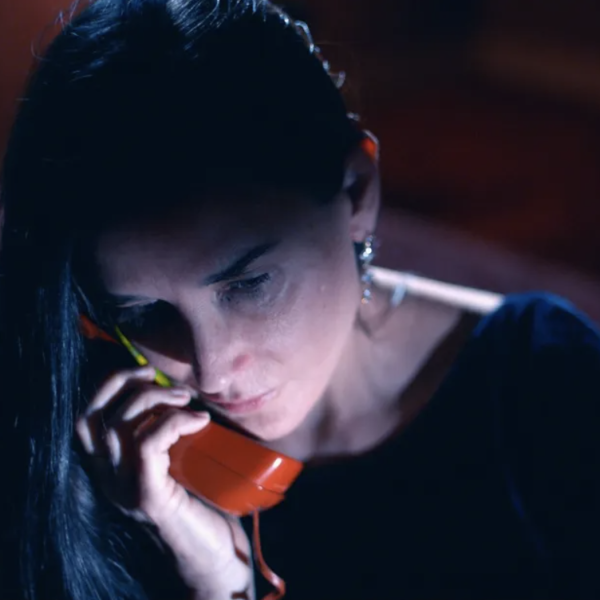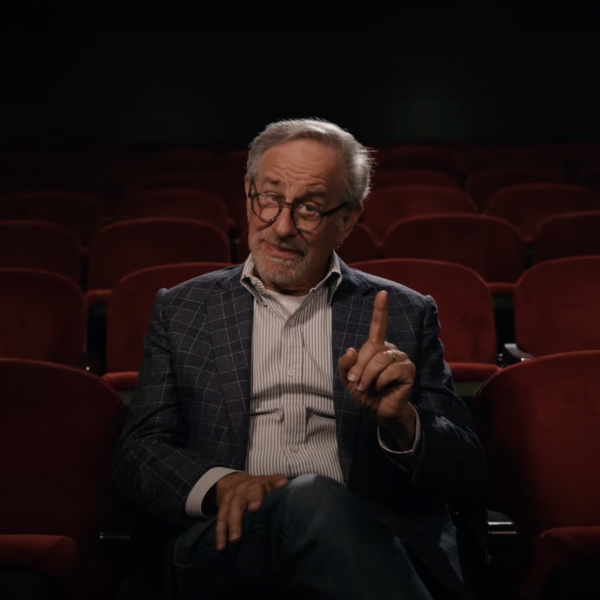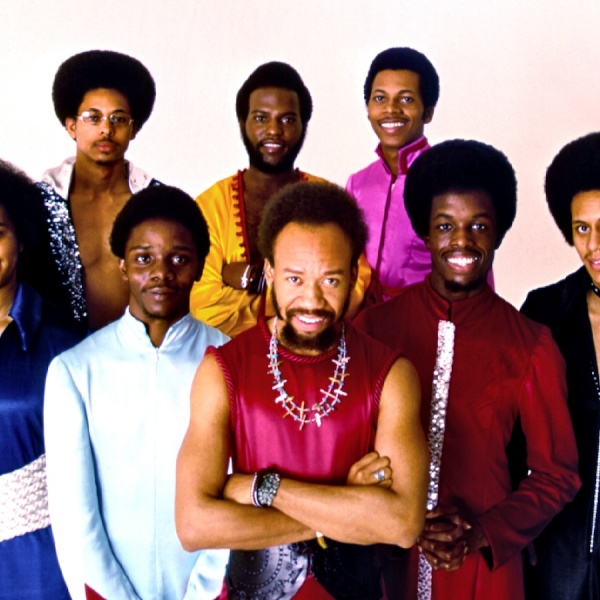Film at Lincoln Center and Cinema Tropical are honoring the legacy of Brazil’s iconic L.C. Barreto Film Productions with retrospective “Isso é Brasil: Cinema According to L.C. Barreto Productions.”
The 13-film festival commemorates 60 years of Barreto-produced features. The series will take place from September 6 through 15 at Lincoln Center.
Director Bruno Barreto and producer Lucy Barreto will both be in attendance to introduce select screenings and take part in Q&As for the new 4K restorations of beloved films like “The Hour and Turn of Augusto Matraga” and “Dona Flor and Her Two Husbands,” which catapulted actress Sônia Braga to international fame. The feature was also Brazil’s highest-grossing film for more than 30 years.
L.C. Barreto Productions was founded in 1963 by Luiz Carlos and Lucy Barreto and is based in Rio de Janeiro. According to a press release, the Barreto family company is Brazil’s most important film production banner and has historically championed “radically political and experimental works, festival prizewinners, and unabashed crowd-pleasers alike.” L.C. Barreto ushered in the Cinema Novo movement, and also was behind Oscar-nominated films “O Quatrilho” and “Four Days in September.”
Cinema Tropical, which co-presents the series, is a non-profit media arts organization that distributes, programs, and promotes Latin American cinema. The banner famously brought “Y Tu Mamá También” and “Amores Perros” to U.S. audiences with some of the first stateside screenings.
“Isso é Brasil” is organized by Tyler Wilson of Film at Lincoln Center and Mary Jane Marcasiano of Cinema Tropical. The series is presented in collaboration with Instituto Guimarães Rosa/Consulate General of Brazil in New York.
Check out the full lineup below, with language provided by the festival. All films will screen at the Walter Reade Theater (165 W. 65th Street).
“Barren Lives / Vidas Sêcas”4K Restoration
Nelson Pereira dos Santos, 1963, Brazil, 100m
Portuguese with English subtitles
Along with Glauber Rocha’s Black God, White Devil and Ruy Guerra’s The Guns, Nelson Pereira dos Santos’s impassioned adaptation of the novel by Graciliano Ramos is considered part of the Golden Trilogy of films that announced Cinema Novo to the world. Set in 1940 amidst a drought-stricken sertão of northeastern Brazil, Barren Lives follows a family—Sinhá Vitória (Maria Ribeiro), Fabiano (Átila Iório), their two small boys, and their dog—as they traverse the region’s merciless landscape in search of work, their attempts to eke out any living met only with further hostility and violence by authority figures. Producer Luiz Carlos Barreto, who also served as a cinematographer, used a “naked lens, with no filter,” that embraced blown-out contrasts and transformed austere imagery into something altogether more unusual and immediate, amounting to a flinty portrait of cyclical poverty that, as the film’s opening implores, “no worthy Brazilian can ignore anymore.” Writing in The New York Times in 1969, Vincent Canby said Barren Lives “comes about as close as may be possible to communicating the feeling of such poverty, especially poverty’s small subsidiary horrors.” 4K restoration courtesy of L.C. Barreto Produções Cinematográficas.
Saturday, September 7 at 3:15pm – Introduction by Lucy Barreto and Bruno Barreto
Friday, September 13 at 6:30pm
“Garrincha, the People’s Joy / Garrinch Alegria do Povo” 2K Restoration
Joaquim Pedro de Andrade, 1963, Brazil, 61m
Portuguese with English subtitles
“I can only make films in Brazil and about Brazil. Only Brazil interests me,” once declared Joaquim Pedro de Andrade, whose five features and nine shorts form one of the most important oeuvres of Cinema Novo. His debut feature—arguably one of the greatest films about soccer—is a form-shifting documentary portrait of his country’s beloved bow-legged dribbler Mané Garrincha. Interspersing moving images and still photographs (many taken by Luiz Carlos Barreto, who also produced and co-wrote the film), de Andrade weaves a kaleidoscopic sketch of the unlikely athlete. In three sections, the film imparts a direct-cinema look at Garrincha’s daily life and his celebrity; a dramatic, near play-by-play account of his performances (and upstaging by the much younger Pelé) in Brazil’s 1958 and ’62 World Cup wins; and, finally, a coda suggesting the icon’s mythic hold on his spectators’ imagination as something by turns galvanizing and paralytic. 2K restoration courtesy of L.C. Barreto Produções Cinematográficas.
Sunday, September 8 at 3:00pm
Saturday, September 14 at 4:30pm
“The Hour and Turn of Augusto Matraga / A Hora e Vez de Augusto Matraga” North American Premiere of 4K Restoration
Roberto Santos, 1965, Brazil, 109m
Portuguese with English subtitles
Luiz Carlos Barreto, Nelson Pereira dos Santos, and singer/composer Geraldo Vandré produced this exhilarating western based on João Guimarães Rosa’s Sagarana, a haunting short story collection detailing people of the sertão in the Brazil’s southeastern state of Minas Gerais. It follows the mythical “hero’s journey” of Augusto Matraga (Leonardo Villar), a violent farmer betrayed by his wife and left for dead. After he is rescued by a pair of farmers, Matraga transforms into a man of faith, and his path of contrition is tested when an opportunity for revenge careens toward an unforgettable final act. Featuring an intense score by Vandré (which Kleber Mendonça Filho and Juliano Dornelles revived in Bacurau [2019]), The Hour and Turn of Augusto Matraga wisely upends Old versus New Testament lessons and transforms its deceptively simple revenge story into something far more ruminative and vast. Featuring Jofre Soares and Maria Ribeiro, who previously appeared in Barren Lives. 4K restoration courtesy of L.C. Barreto Produções Cinematográficas.
Saturday, September 7 at 8:45pm – Introduction by Lucy Barreto and Bruno Barreto
Thursday, September 12 at 4:00pm
Sunday, September 15 at 6:00pm
“Entranced Earth / Terra em Transe”
Glauber Rocha, 1967, Brazil, 108m
Portuguese with English subtitles
A pivotal film from one of the key figures of Brazil’s Cinema Novo, Entranced Earth is alternately a rallying cry and a poetic account of political corruption, the systems that shape it, and the challenges of active citizenship in times of political upheaval. Made three years after the right-wing coup d’etat in Brazil, the film is set in the fictional country of El Dorado, in which a young intellectual attempts to chart a political path. First joining the extreme right, and then a party of the left, he ultimately finds dispiriting power dynamics in each. Shot by Luiz Carlos Barreto and unfolding in a mesmeric style that mixes bizarre, baroque imagery with realist formal maneuvers—something like the synthesis of Francesco Rosi, Buñuel, and Visconti—the film is a monumental work of political cinema that pushes its audience to examine its own role in civil society.
Friday, September 6 at 9:00pm
Wednesday, September 11 at 6:00pm
Saturday, September 14 at 6:30pm
“This Is Pelé / Isto É Pelé” 2K Restoration
Luiz Carlos Barreto, Eduardo Escorel, 1974, Brazil, 70m
Portuguese with English subtitles
Released four years after the Brazilian national team’s 1970 World Cup victory, Luiz Carlos Barreto’s directorial debut—made with Cinema Novo editor Eduardo Escorel (Entranced Earth, Macunaíma, among many others)—assembles excerpts from seemingly hundreds of hours of footage taken of the record-breaking footballer. On the soundtrack, journalist Sérgio Chapelin tells the story of the Brazilian team’s first three World Cup wins with Pelé as the protagonist. Unlike in Garrincha, the People’s Joy, which studied the inner and public life of its subject, This Is Pelé delights solely in the athlete’s artistry on the field. Escorel’s montage, composed of both black-and-white and gorgeous color archival material, alights upon small but specific details of its extraordinary subject: his passes, his goals, and the cultish crowds cheering around him. 2K restoration courtesy of L.C. Barreto Produções Cinematográficas. Tuesday, September 10 at 5:15pm
Sunday, September 15 at 8:30pm
“Dona Flor and Her Two Husbands / Dona Flor e Seus Dois Maridos,” 4K Restoration
Bruno Barreto, 1976, Brazil, 117m
Portuguese with English subtitles
Bruno Barreto was 20 years old when he injected new life into Brazilian cinema and discovered Sônia Braga with this sensuous comedy-fantasy, based on Jorge Amado’s best-selling classic 1966 novel. Braga stars as Flor, whose gambling, unfaithful husband Vadinho (José Wilker, Bye Bye Brazil) drops dead while dancing in the streets of Bahia during carnival. Eight years later, Flor gets the respectable husband she’s always yearned for in Dr. Teodoro Madureira (Mauro Mendonça), but her neglected libido calls her first husband from the grave…. Making rich use of Salvador’s colonial palette, Murillo Salles’s inspired camerawork brilliantly contrasts Bahia’s rigid middle-class behavior and morals with the libertine life richly embodied by Wilker’s blond malandro and Braga’s erotic breakthrough performance. The song “O que será” by Chico Buarque, one of the biggest hits of his career, was written and composed especially for the film. Dona Flor became Brazil’s most successful film upon its domestic release in 1976, and remained its highest grossing film for 35 years. Internationally, it received Golden Globe and BAFTA nominations and was the highest-grossing Brazilian film worldwide for more than 30 years. 4K restoration courtesy of Film Movement. “Dona Flor and Her Two Husbands should be seen as liberating, an unpretentious and uncomplicated slant on desire” Mark Chalon Smith, LOS ANGELES TIMES.
Friday, September 6 at 6:00pm – Q&A with Lucy Barreto and Bruno Barreto
Tuesday, September 10 at 2:45pm
Saturday, September 14 at 9:00pm
“Amor Bandido” World Premiere of 4K Restoration
Bruno Barreto, 1979, Brazil, 90m
Portuguese with English subtitles
Bruno Barreto’s follow-up to Dona Flor and Her Two Husbands is a love story of an entirely different order—a mixture of sexploitation sleaze and hard-boiled melodrama that calls to mind Hardcore and Natural Born Killers. Set within the tropical, overcrowded quarters of Rio’s Copacabana, where newsstands peddle porn in comic books and a serial killer preys upon cab drivers, go-go girl/sex worker Sandra (Christina Aché) and her sadistic hustler boyfriend Toninho (Paolo Guarnieri) play out a doomed romance against the backdrop of this wanton killing spree, which happens to be investigated by Sandra’s estranged cop father (Paulo Gracindo). Written by José Louzeiro and Leopoldo Serran, who allegedly based their screenplay on true events, Amor Bandido is a completely bizarre erotic tale about a stratified patriarchal society and the uncontrollable fallout of its disenfranchised youth. 4K restoration courtesy of L.C. Barreto Produções Cinematográficas. “HIGH-POWERED FILMMAKING… ELECTRIFYING IN ITS CARNALITY. VIVID, UNSETTLING, TAUT.” Jim Hoberman, VILLAGE VOICE.
Sunday, September 8 at 8:00pm – Introduction by Lucy Barreto and Bruno Barreto
Wednesday, September 11 at 8:30pm
“Bye Bye Brazil / Bye Bye Brasil” North American Premiere of 4K Restoration
Carlos Diegues, 1980, Brazil/Argentina/France, 103m
Portuguese with English subtitles
Cinema Novo godfather Carlos Diegues directed films that were an integral part of the cultural and sociopolitical struggles facing Brazil in the 1960s, particularly the country’s underexplored Afro-Brazilian heritage. One of his most essential works, Bye Bye Brazil concerns a motley crew of traveling performers (led by José Wilker, the devilish spirit of Dona Flor and Her Two Husbands) entertaining various audiences across Brazil’s northwestern Amazonian landscape. Accordionist Ciço (Fábio Júnior) and his wife Dasdô (Zaira Zambelli) join the rollicking caravan, leading to a string of adventures and good songs. Diegues’s low-key road movie-cum-musical captures the country’s changing times—both the myth and the reality of Brazil’s underdevelopment—with documentary-like specificity. Upon its release, Vincent Canby in The New York Times called it “a psychological inventory of a country on the verge of extraordinary economic and industrial development, a travelogue through a nation that doesn’t yet exist.” 4K restoration courtesy of L.C. Barreto Produções Cinematográficas.
Saturday, September 7 at 6:00pm – Q&A with Lucy Barreto and Bruno Barreto
Wednesday, September 11 at 3:45pm
Friday, September 13 at 9:00pm
“Memoirs of Prison / Memórias do Cárcere” 4K Restoration
Nelson Pereira dos Santos, 1984, Brazil, 188m
Portuguese with English subtitles
This major late-career work from Nelson Pereira dos Santos (who had struggled to make it for more than 20 years) is based, as was his earlier groundbreaking film Barren Lives, on a book by Graciliano Ramos. Though it takes place during the Getúlio Vargas dictatorships of the 1930s, when a violent wave of repressions swept the country, Pereira doubtlessly points to a more contemporary Brazil, crafting a damning account against prisons in the widest sense of the term. It centers on Ramos (Carlos Vereza) sinking ever deeper into a bizarre nightmare after he is locked up with other political prisoners in Rio de Janeiro (for “subversive” writing) and then, eventually, with all stripes of inmates on a remote island. Through enforced contact with a wide variety of criminals, he gains a more refined understanding of his country as he grows closer than ever to his wife (Glória Pires), who is transformed by her husband’s imprisonment into a resourceful and enterprising combatant in the struggle for freedom. Winner of the International Critics Prize for the best film at the 1984 Cannes Film Festival. An NYFF22 selection. 4K restoration courtesy of L.C. Barreto Produções Cinematográficas.
Tuesday, September 10 at 7:00pm
Sunday, September 15 at 2:00pm
“O Quatrilho” 2K Restoration
Fábio Barreto, 1995, Brazil, 114m
Portuguese with English subtitles
The first Brazilian film nominated for the Academy Award for Best Foreign Language Film in more than 30 years, Fábio Barreto’s romantic historical melodrama is a complex study of love and ambition at the dawn of the 20th century. Set in Brazil’s southernmost state of Rio Grande do Sul around 1910, when thousands of Italian immigrants were settling in the area, the film concerns two such couples—Teresa and Angelo, and Pierina and Massimo—whose respectively mismatched unions become painfully apparent when they decide to live under one roof. Their four lives intersect with lasting repercussions after Massimo (Bruno Campos, in his film debut) and Teresa (Patricia Pillar) develop undeniable feelings for each other. Drawn from José Clemente Pozenato’s novel of the same name, which refers to a card game in which partners must betray each other to win, O Quatrilho luxuriates in agrarian period trappings while casting a jaundiced eye on restrictive cultural mores. 2K restoration courtesy of L.C. Barreto Produções Cinematográficas.
Monday, September 9 at 9:00pm
Saturday, September 14 at 2:00pm
“Four Days in September / O Que É Isso, Companheiro?” World Premiere of 4K Restoration
Bruno Barreto, 1997, Brazil, 113m
English and Portuguese with English subtitles
Four years after the United States-backed coup d’etat in Brazil, freedom of speech was suspended and dissident intellectuals were rounded up for torture, death, and deportation. Bruno Barreto’s Oscar-nominated political thriller chronicles one of the most radical acts born of this period, in which a group of young revolutionaries abducted the United States Ambassador to Brazil, Charles Elbrick, and held him in the hilly neighborhood of Santa Teresa until the military government agreed to release 15 political prisoners. Starring Alan Arkin as Elbrick and Pedro Cardoso as Fernando Gabeira, on whose 1979 novel/account O Que É Isso, Companheiro? the film is based, Four Days in September is an ultra-tense process movie and a complex, melancholic meditation—with a moving and haunting score by Stewart Copeland—on the everyday Brazilians who challenged and were ultimately destroyed by the dictatorship. 4K restoration courtesy of L.C. Barreto Produções Cinematográficas. “Throughout Four Days in September, Barreto adamantly refuses to divide his characters into heroes and villains. The director even is willing to give the devil his due.” Joe Leydon, VARIETY.
Sunday, September 8 at 5:00pm – Q&A with Lucy Barreto and Bruno Barreto
Thursday, September 12 at 8:30pm
“The Middle of the World / O Caminho das Nuvens”
Vicente Amorim, 2003, Brazil, 35mm, 85m
Portuguese with English subtitles
Vicente Amorim’s first feature is an emotional drama in the genre of Brazilian road movies and sertão films. Set before Luiz Inácio Lula da Silva’s first election, it is based on the true story of a truck driver, Cícero Ferreira Dias, whose family bikes from Paraíba state to Rio de Janeiro in search of a job paying 1,000 Brazilian reais, a highly unrealistic salary for an unskilled man. Wagner Moura (Elite Squad, Narcos), in one of his breakthrough roles, and Cláudia Abreu star as Romão and Rose, a couple with five children making the 3,200-kilometer (2,000-mile) family bicycle trip, earning some money along the way singing the hits of Roberto Carlos—the Brazilian Julio Iglesias—at road stops. David França Mendes’s sensitive script makes it subtly clear that, for a poor man, this is a utopian value—a fantasy that gives Romão comfort and hope. A New Directors/New Films 2004 selection. Preserved 35mm print courtesy of the Harvard Film Archive.
Monday, September 9 at 4:00pm Thursday, September 12 at 6:15pm
“Reaching for the Moon / Flores Raras” World Premiere of 4K Restoration
Bruno Barreto, 2013, Brazil, 115m
English and Portuguese with English subtitles
Bruno Barreto’s romantic drama, set in the 1950s–60s, follows Pulitzer Prize–winning American poet Elizabeth Bishop and her affair with architect Lota de Macedo Soares, designer of Rio’s Flamengo Park. Miranda Otto (Lord of the Rings) portrays Bishop as icy yet vulnerable, while Glória Pires embodies the passionate Lota. The film juxtaposes Bishop’s alcoholism with Lota’s park obsession against the backdrop of Brazil’s brewing military coup. As their relationship unravels and Bishop returns to New York, the film explores the quest for inspiration and is a cautionary tale on relationship dynamics and the art of losing. Marcelo Zarvos’s score draws the audience into the complexity of the main character’s feelings. Iconic Brazilian songs by Humberto Teixeira, Antônio Carlos Jobim, and Vinicius de Moraes, along with classics by Irving Berlin and Billie Holiday are featured in the soundtrack. 4K restoration courtesy of L.C. Barreto Produções Cinematográficas. “BRUNO BARRETO’S REACHING FOR THE MOON IS THE BEAUTIFUL RESULT OF A FILMMAKER INSPIRED BY THE EXCEPTIONAL POETRY OF DISTINCTLY VISUAL WRITER ELIZABETH BISHOP (MIRANDA OTTO, TRANSLUCENT AND CAPTIVATING).” Anne-Katrin Titze, EYE FOR FILM.
Monday, September 9 at 6:00pm – Q&A with Bruno Barreto
Friday, September 13 at 4:00pm






